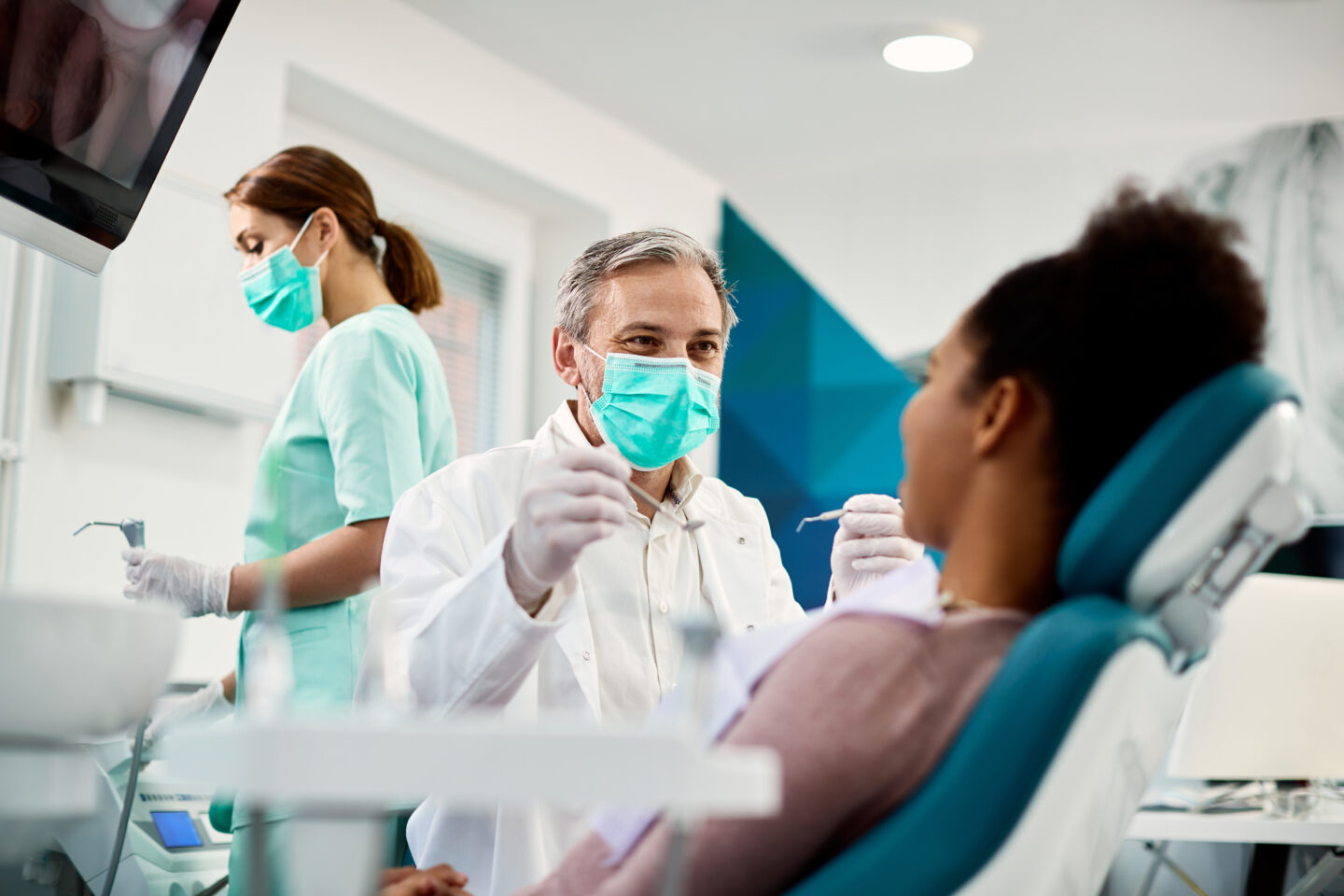
☝️ At a glance
- MBBS focuses on general medicine and human anatomy, while BDS specializes in dental anatomy, surgery, and dental sciences.
- The eligibility criteria are the same for both. You must have a science background in 12th grade, followed by the NEET UG exam, for admission to either an MBBS or BDS program.
- MBBS vs. BDS Course Duration: MBBS requires 5.5 years to complete, including a one-year internship, while BDS typically takes 5 years, with a similar internship requirement, covering subjects like dental anatomy and oral surgery.
- Career Path: MBBS offers broader career prospects with the option to specialize in various medical fields and higher earning potential, whereas BDS offers fulfilling careers in dental practice, with specialization leading to greater job satisfaction and income.
📖 Table of Contents
Introduction
Choosing a career path after 12th grade is a significant decision for every student. With opinions from friends, family, relatives, and teachers, it’s easy to feel overwhelmed. Sometimes, this can lead to confusion, and students may end up making decisions they later regret.
This is a common scenario for many medical professionals. Today, let’s explore two popular courses that many science students consider after 12th: the MBBS (Bachelor of Medicine, Bachelor of Surgery) course and the BDS (Bachelor of Dental Surgery) course. We will cover all aspects of these fields, helping you make an informed decision and choose the right medical course.
MBBS vs BDS is a highly demanded topic and one of India’s most sought-after career paths for medical students. Admission to these courses is possible after clearing the NEET (National Eligibility cum Entrance Test), which is held annually. NEET is not just an exam; it’s the dream of many students who dedicate their days and nights to preparing for it. However, preparing for NEET can be challenging, and finding quality coaching at an affordable price is even more difficult. NEETsheet by futureMBBS offers top-notch coaching with experienced and reputed teachers, all at affordable prices.
In this article, we’ll take a deep dive into both MBBS and BDS courses, covering eligibility criteria, scope, career opportunities, duration, fees, private colleges for BDS and MBBS, and government medical colleges, and much more to help you choose the right path for your future.
Understanding MBBS and BDS courses
Before we go further, let’s understand what these medical science courses stand for.
MBBS stands for Bachelor of Medicine and Bachelor of Surgery. It’s the degree you need to become a doctor – the one who diagnoses illnesses, prescribes treatments, and saves lives.
BDS stands for Bachelor of Dental Surgery. This course is for those who want to become dentists. It deals with dental sciences, oral surgery, dental anatomy, and more. Dentists are the experts who take care of our teeth, gums, and overall oral health.
Both medical courses are respected and rewarding careers in the medical field, but they differ significantly in terms of what you’ll be doing in the long run.

What is MBBS?
MBBS, or Bachelor of Medicine and Bachelor of Surgery, is designed for those who want to become medical doctors in the future. It is an undergraduate course that provides students with both practical and theoretical knowledge about the human body, so that they can master their field. Additionally, you will study general medicine, surgical management, physiology, medical practice, and more. The MBBS course is tough, but it enables rewarding job opportunities in the healthcare sector.
Advantages of studying MBBS
Studying MBBS (Bachelor of Medicine and Bachelor of Surgery) is like stepping into a journey where you not only learn how the human body works but also how to heal it. One of the biggest advantages of studying medicine is the respect that comes with being a medical doctor. In almost every corner of the world, people trust doctors.
Another great thing about MBBS is job security because people will always need doctors. Whether in a big city hospital or a small village clinic, medical professionals are always in demand. Plus, once you’re a doctor, you have many paths to choose from. You can become a surgeon, pediatrician, dermatologist, or even go into research or teaching.
Doing MBBS also gives you a chance to help people directly. It’s one of the few professions where you can make a real difference in someone’s life, sometimes even saving it. That feeling is priceless and very fulfilling.
On the financial side, being a doctor can lead to a stable and decent income, especially once you specialize in a particular medical field.
There are many MBBS colleges that not only teach students about health and medicine but also teach you discipline, patience, and hard work. It’s not an easy course, but the effort makes you stronger mentally and emotionally.
So, the journey of MBBS graduates is long and full of rewards; it may be tough sometimes, but it is worth it. You will achieve respect and success not only in your professional life but also in your personal life.
Eligibility criteria for MBBS
If you want to become a doctor by studying medicine bachelor of surgery (MBBS), here are the things you need to keep in mind before starting your journey.
MBBS admission isn’t too difficult; it just requires sincerity and dedication. First, you must complete your Class 12 (high school) with the science stream. This means your main subjects should be Physics, Chemistry, and Biology. English is also usually required. You should score at least 50% marks in these subjects to become eligible for pursuing a medicine bachelor degree.
The most important step after that is to clear the entrance exam, i.e., NEET-UG exam. It is the entrance exam for admission into an MBBS degree or other medical courses in India. This exam is mandatory, whether you want to study in a government or private medical college. Every year, there is tough competition for MBBS seats, especially in top institutions, so preparing well is crucial.
You can apply for NEET if you are at least 17 years old by the end of the year in which you’re taking the exam. NEET is a competitive exam, so even though passing is important, getting a high rank is what helps you get into a good college. There’s no limit to the number of attempts for NEET, so you can try again if you don’t get through the first time. The admission process becomes easier once you clear NEET with a good rank. If you want to study MBBS abroad, you still need to qualify for NEET to get your degree recognized in India.
Aspiring medical professionals must be ready for a long yet rewarding academic journey.

Crack NEET Like a Topper!
Your NEET success story starts here, and we've got everything you need to make it happen:
- A power-packed NEET-level question bank to sharpen your skills
- Daily live and recorded classes – learn anytime, anywhere
- Expert-crafted test series and annotated notes to simplify tough concepts
- Unlimited doubt-clearing – because no question should hold you back
Don’t just prepare, prepare to win!
MBBS duration
MBBS takes a good amount of time, but that’s because doctors need to learn a lot before they start treating real patients.
In India, the total duration of the medicine bachelor course is 5.5 years. Out of this, 4.5 years are for learning through classes, labs, hospital visits, and many more. These years are divided into different phases where MBBS students learn everything from how the body works to how to treat various diseases. Subjects include anatomy, physiology, surgery, medicine, and more.
Then comes the 1-year compulsory internship. This is not just for learning from books, but also where students work in real hospitals, assist in surgeries, treat patients under supervision, and experience different departments like medicine, surgery, gynecology, pediatrics, etc. It’s hands-on experience, and it helps future doctors become confident and skilled.
So, in total, it’s 5.5 years of study + training, and every part of it is important. You don’t just become a doctor overnight; it’s a slow and steady process that builds your knowledge and sharpens your skills.
MBBS syllabus
The MBBS syllabus in India is designed to build a strong foundation in medical knowledge, clinical skills, and patient care. It is broadly divided into three phases: Pre-Clinical, Para-Clinical, and Clinical. In the first year (Pre-Clinical), students study subjects like Anatomy, Physiology, and Biochemistry to understand the human body's structure and functions. The second year (Para-Clinical) includes Pathology, Microbiology, Pharmacology, and Forensic Medicine, along with an introduction to Community Medicine. From the third year onwards (Clinical Phase), students focus on core medical like Medicine, Surgery, Pediatrics, Gynecology & Obstetrics, Ophthalmology, and ENT, with regular hospital training. Alongside theory classes, students also have clinical postings in hospitals where they interact with real patients under supervision. The final part of the MBBS program is a compulsory one-year rotating internship where students gain hands-on experience across different medical departments. The curriculum is regulated by the National Medical Commission (NMC), which ensures that MBBS graduates are thoroughly trained to handle medical responsibilities in real-world settings.
Career opportunities after MBBS
After completing the MBBS program, the career options are vast. Some of the main paths include:
You can work as a general doctor in hospitals, clinics, or even start your own practice. You’ll treat a variety of patients and diseases.
You can choose a specialty (like surgery, cardiology, pediatrics, or dermatology) by pursuing further studies (MD, MS, or super-specializations). Specializations open up more opportunities for higher-paying roles.
If you're interested in academics, you can become a medical professor or researcher, contributing to advancements in medicine.
You can also enter the management side of healthcare, like working in hospitals or healthcare organizations as a medical administrator.

What is BDS?
BDS stands for Bachelor of Dental Surgery, a professional degree that trains students to become dentists. This course focuses on dental sciences, including subjects like oral medicine, tooth care, and treating dental diseases. After completing BDS, graduates can work in clinics, hospitals, or even set up their own dental practice.
Advantages of studying BDS:
There’s a growing need for dentists as more people are becoming aware of the importance of dental and oral health. Completing a Bachelor of Dental Surgery (BDS) opens up multiple paths. BDS graduates have the flexibility to work in hospitals, join reputed dental colleges as faculty, private clinics, or even open their own dental clinic after gaining some experience. Dentistry is a well-paying career, with opportunities to earn more, especially if you specialize. Plus, it’s a profession that brings a lot of satisfaction because you’re helping people maintain their dental health and making a real difference in their lives.
Eligibility criteria for BDS
To pursue BDS, candidates must meet the following criteria. They must have completed 12th grade with subjects like Physics, Chemistry, and Biology (PCB), securing a minimum of 50% marks in the qualifying exam. Admission to BDS colleges is possible only after clearing the NEET-UG, which acts as the main BDS entrance exam across India. Without qualifying for NEET, getting into a recognized dental college is not possible. It’s important for aspiring dental students to prepare well for NEET to secure a seat in good institutions.
BDS duration
The Bachelor of Dental Surgery course usually takes five years to complete, which includes four years of academic study and one year of compulsory internship. During the academic years, students receive theoretical knowledge combined with clinical exposure, where they interact with patients and develop practical skills. The internship year focuses more on hands-on experience, helping students perform dental surgeries under supervision and manage real-world dental cases. This combination of learning and practice ensures that students are well-prepared for professional life.
BDS syllabus
The BDS syllabus is structured to gradually build a student’s knowledge and skills.
In the first year, students learn the basics like Anatomy, Physiology, Biochemistry, and an introduction to Dental Materials, setting a strong foundation.
In the second year, subjects like Pathology, Pharmacology, and Microbiology are introduced, and students start understanding the biological basis of diseases, including oral pathology.
The third year focuses on important clinical subjects such as Oral Surgery, Conservative Dentistry, Orthodontics, and Prosthodontics. During this period, students get increased clinical exposure, allowing them to apply their theoretical knowledge in treating patients.
In the final year, advanced topics like Oral Medicine, Periodontics, Pediatric Dentistry, and Oral Pathology are covered in depth. Students also undergo intense practical training and prepare for the professional challenges ahead.
Career opportunities after BDS
As a BDS graduate, there are plenty of career opportunities:
Private Dental Clinic: Many BDS graduates open their own dental clinic or join an established one after gaining some experience.
Public Health Dentistry: Work with government agencies and NGOs to promote oral health awareness and conduct dental camps.
Teaching & Research: You can teach in dental colleges or engage in research to discover new treatments and technologies in the field of dental sciences.
Specialization: After BDS, you can pursue MDS (Master of Dental Surgery) in fields like Orthodontics, Periodontics, Oral and Maxillofacial Surgery, and more, which significantly boosts career prospects and salary potential.
Best universities in India for MBBS and BDS
University | MBBS | BDS |
All India Institute of Medical Sciences (AIIMS), New Delhi | King George’s Medical University (KGMU), Lucknow | |
Post Graduate Institute of Medical Education and Research (PGIMER), Chandigarh | Maulana Azad Institute of Dental Sciences (MAIDS), New Delhi | |
Christian Medical College (CMC), Vellore | Manipal College of Dental Sciences (MCODS), Manipal | |
Banaras Hindu University (BHU), Varanasi | Bangalore Institute of Dental Sciences (BIDS), Bangalore | |
Jawaharlal Institute of Postgraduate Medical Education and Research (JIPMER), Puducherry | Saveetha Dental College, Chennai |
Best medical universities in Europe
Planning to study abroad? We've got a list of the finest universities for medical studies.
Charles University Pilsen- Czech Romania
Semmelweis University Budapest- Hungary
Jessenius University Martin- Slovakia
Stradins University Riga- Latvia
University of Nicosia- Cyprus
University of Split- Croatia
University of Health Sciences Kaunas- Lithuania
Medical University Poznan- Poland
Medical University Cluj- Romania
Conclusion
In conclusion, both MBBS and BDS are prestigious career paths in the medical, but they differ significantly in terms of focus, training, and career opportunities. MBBS offers a broad scope for those wanting to become medical doctors, with various specializations and a higher earning potential as a doctor. On the other hand, BDS is ideal for those passionate about dental care, offering a fulfilling career in dentistry with the potential for specialization and high job satisfaction. Ultimately, the choice between MBBS and BDS depends on personal interests, career goals, and the level of commitment one is willing to make to their chosen field.
We hope this article helped you and gave you the information you were looking for. If you want to keep learning and get more useful tips like this, make sure to check out futureMBBS. Whether it’s about studying abroad, choosing the right university, or preparing for NEET, we’ve got everything covered. And if you’re serious about NEET, don’t miss out on NEETSheet by futureMBBS. We also work with top universities or medical institutions across different countries and provide complete support through the entire process. So, stay connected with futureMBBS and make your dream of studying medical education a reality.
Read similar articles:
https://future-mbbs.com/aiims-exam/
https://future-mbbs.com/neet-reservation/
https://future-mbbs.com/neet-date-of-exam/
https://future-mbbs.com/neet-attempt-limit/
https://future-mbbs.com/counselling-for-neet-pg/
Ready to ace NEET?
NEETsheet helps you focus on what really matters with expert study guidance. Don’t leave your success to chance!
Start your NEET prep journey today!Frequently asked questions
Is BDS better than MBBS?
The choice between BDS and MBBS depends on your interest in medical sciences and career goals. MBBS prepares you for a career in general medicine, offering a broader scope in health, while BDS focuses on dental surgery and oral care. If you prefer working with teeth and dental health, BDS might be a better fit, but if you're more interested in general medicine and broader medical fields, MBBS may be more suitable.
Are BDS jobless in India?
No, BDS graduates are not jobless in India. There are plenty of career opportunities in dental surgery, including private practice, hospital roles, and teaching positions in medical education. Moreover, BDS professionals can pursue specializations in fields like oral surgery and prosthodontics to increase their job prospects and income.
Can BDS be called Dr.?
Yes, BDS graduates can use the title Dr. as it is a recognized medical qualification. The BDS course is a legitimate health sciences degree, and dental professionals are addressed as Dr. upon completion of the course and registration with the Dental Council of India.
Is MBBS losing its value?
MBBS is not losing its value; in fact, it remains one of the most respected and sought-after medical courses globally. However, with the growing demand for specialized medical fields, many MBBS professionals are opting for further specialization in areas like surgery, pediatrics, and general medicine to enhance their careers.
Is BDS good for the future?
Yes, BDS is a promising career choice for the future, especially with the growing awareness of dental hygiene and the increasing demand for dental surgery services. As a BDS graduate, you can explore various fields of dentistry, work in private practice, or even pursue medical education in dental specialties. The field offers good job security, growth, and a stable income.




